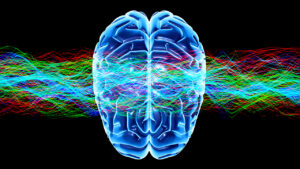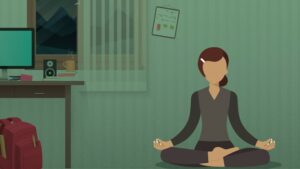If you are one of the millions of people who suffer from OCD, you know that medication is not always the answer. In fact, for some people, medication can make their symptoms worse. If you are looking for a non-medication approach to treating your OCD, read on! In this blog post, we will discuss some proven strategies for OCD treatment without medication that have helped many people get their lives back on track.
Contents
Medications For OCD

OCD, or so known as Obsessive Compulsive Disorder, is a mental health disorder that affects millions of people all over the world. It is characterized by intrusive and unwanted thoughts (obsessions) and/or repetitive behaviors (compulsions). These obsessions and compulsions can take over a person’s life, causing them immense distress. It is a chronic and debilitating condition that can wreak havoc on a person’s life.
Even though there is no permanent cure for this condition, there are treatments that can help lessen the symptoms and allow the person to live a relatively normal life. The most common form of treatment for OCD is medication. There are many different types of OCD medications available, and they all work in slightly different ways. The most commonly prescribed OCD medications include:
- Selective serotonin reuptake inhibitors (SSRIs)
- Serotonin and norepinephrine reuptake inhibitors (SNRIs)
- Tricyclic antidepressants (TCAs)
- Monoamine oxidase inhibitors (MAOIs)
Some common brand names by which these medicines are available include:
- Prozac (fluoxetine)
- Zoloft (sertraline)
- Paxil (paroxetine)
- Celexa (citalopram)
- Lexapro (escitalopram)
- Effexor (venlafaxine)
Each of these medications can be effective in treating OCD, but they all have potential side effects, as well as their own working mechanisms. That’s why it’s important to work with a mental health professional to figure out which medication is right for you.
Why Do People Avoid OCD Medication?

Although some people find relief from their OCD symptoms with medication, others do not. There are various reasons why one might choose not to medicate their OCD.
- Some people do not like the idea of taking medication for a mental health disorder with a worry about becoming reliant on medication.
- For some people, the side effects of the medication are too much to handle.
- Others may feel like they are not getting better, even after taking their OCD medicine as prescribed.
- OCD medications also do not react well in case you are suffering from other mental health disorders.
- And lastly, some people just want to try to manage their OCD without medication first.
All of these reasons are valid, and if you are not comfortable with the idea of taking medication for your OCD, there are other options available.
OCD Treatment Options Without Medication
We will now understand and explore the other options available for treatment of OCD without medication. All these methods are proven and do not require any type of medication:
Therapy
Therapy is a general term that can refer to any type of psychological treatment. It is usually provided by a licensed mental health professional, such as a psychiatrist, psychologist, or social worker. Therapy can be done in individual, family, or group sessions. Therapy involves a mental health professional and client sitting together to talk about the client’s thoughts, feelings, and behaviors. The therapist will help the client to understand their OCD and develop coping and problem-solving skills. Some of the most effective and popular approaches include:

- Cognitive Behavioral Therapy (CBT): CBT works by helping you to change the way you think about your obsessions and compulsions (your thoughts) and the way you react to them (your behaviors).
- Dialectical behavior therapy (DBT): DBT is a specific type of CBT that emphasizes the importance of acceptance and change. It focuses on helping you to accept yourself and your OCD, while also working towards change.
- Exposure and Response Prevention Therapy (ERP): ERP is a type of CBT that focuses on helping you to face your fears and learn how to respond to them in a different way.
- Acceptance and Commitment Therapy (ACT): ACT is a type of CBT that helps you to accept the things that are out of your control and focus on the things that you can control. It also helps you to commit to taking action towards your goals.
- Mindfulness-Based Cognitive Therapy (MBCT): MBCT helps you to become more aware of your thoughts and feelings and learn how to respond to them in a more positive way.
- Expressive art therapy: Expressive art therapy is a type of therapy that uses art as a way to express your thoughts and feelings. It can be helpful in reducing stress and anxiety and can also be a way to explore your OCD.
- Family/Group therapy: Family/group therapy is a type of therapy that involves meeting with a group of people who are dealing with similar issues. This works by providing support and understanding from others who are going through the same thing.
- Hypnosis: Hypnosis is a type of therapy that uses relaxation and suggestions to help you to change your thoughts and behaviors.
- Biofeedback: Biofeedback is a type of therapy that uses sensors to help you to become more aware of your body’s stress response and learn how to control it.
- Organizational skills training: This type of therapy helps you to learn how to better organize your thoughts and actions.
These are some of the most common types of therapy that can help with OCD. If you are considering any of these options, it is important to talk to your doctor or mental health professional to find out which approach would work the best for you.
Brain Stimulation Techniques

OCD is a mental disorder that can also be treated with brain stimulation techniques. These techniques work by changing the way the brain works and can be an effective treatment for OCD. The most common types of brain stimulation techniques are:
- Electroconvulsive therapy (ECT): ECT uses electrical shocks to the brain to treat mental disorders. It most commonly helps to treat depression, but it can also be effective in treating OCD. It works by changing the way the brain works through electrical shocks.
- Transcranial magnetic stimulation (TMS): TMS uses magnetic fields to stimulate the brain. It is a newer treatment option that can be effective in treating OCD. It works through magnetic fields that stimulate the brain.
- Vagus nerve stimulation (VNS): VNS is a type of brain stimulation that uses electrical impulses to stimulate the vagus nerve. It is most commonly used to treat epilepsy, but it can also be effective in treating OCD. It works through electrical impulses that stimulate the vagus nerve.
- Deep brain stimulation (DBS): DBS is a type of brain stimulation that uses electrical implants to stimulate the brain. It most commonly treats Parkinson’s disease, but it can also be effective in treating OCD. It works through electrical implants that stimulate the brain by sending electrical signals to specific areas of the brain.
These are some of the most common types of brain stimulation techniques that can be used to treat OCD when it does not respond to other treatments. If you are considering any of these options, it is important to talk to your physician or surgeon to check for what’s right for you.
Relaxation Techniques
As the name might suggest, relaxation techniques are used to help you to relax both your body and your mind. Relaxation techniques can be helpful in reducing stress and anxiety, which can be helpful in managing OCD. Some of the most common relaxation techniques include:

- Progressive muscle relaxation: This technique involves tensing and relaxing different muscle groups in your body. Starting from your toes and working your way up to your head, you will tighten each muscle group for a few seconds and then release it.
- Deep breathing: Deep breathing is a simple but effective relaxation technique that can be done anywhere. To do this, you simply need to take slow, deep breaths in through your nose and out through your mouth.
- Visualization: Visualization involves using your imagination to picture a calm and relaxing place. Once you have a place in mind, you will focus on the details of that place and try to imagine yourself there.
- Guided meditation: Guided meditation involves following along with a recorded voice or video that leads you through a relaxation exercise. It works by helping you to focus your attention on something other than your thoughts and worries.
- Yoga: Yoga is a type of exercise that involves both physical and mental components. The physical component can help to reduce stress and tension in your body, while the mental component can help to focus and calm your mind.
- Mindfulness: Mindfulness is a type of meditation that involves focusing on your breath and being aware of your thoughts and feelings without judging them. This can help you to become more aware of your OCD thoughts and learn how to respond to them in a more positive way.
These are just a few of the many relaxation techniques that can be helpful in managing OCD. If you want to try any of these, it is important to talk to a professional first.
Supplements
Supplements are not a replacement for therapy or medication, but they can be a helpful addition to your treatment plan. They aid and support the work that you are doing in therapy and can help to reduce stress and anxiety. Some of the most common supplements for OCD include:
- Omega-three fatty acids: Omega-three fatty acids are a type of fat that is found in fish oil. They can be helpful in reducing inflammation and improving brain function.
- Probiotics: Probiotics are live bacteria that are found in yogurt and other fermented foods. They can help to improve gut health and reduce stress and anxiety.
- Magnesium: Magnesium is a mineral that is available in green leafy vegetables, nuts, and seeds. It can help to relax the nervous system and reduce anxiety.
- Vitamin B12: Vitamin B12 is found in meat, fish, and eggs. It can help to improve brain function and reduce stress and anxiety.
- Zinc: Zinc is a mineral that is present in meat, seafood, and beans. It can help to boost the immune system and reduce anxiety.
In addition to food supplements, there are also supplements that contain herbs. These can be helpful in reducing stress and anxiety. Some of the most common herbal supplements for OCD include:

- Lavender: Lavender is an herb that has been used for centuries to treat a variety of ailments. It has been shown to be effective in treating anxiety and depression, and is also thought to help with OCD. A recent study showed that lavender oil was able to significantly reduce the symptoms of OCD in children.
- Chamomile: Chamomile is an herb that has a calming effect. It can be helpful in reducing anxiety and improving sleep.
- Passionflower: This flowering herb has been traditionally used to treat anxiety and insomnia, both of which can be symptoms of OCD. A 2016 study found that passionflower was as effective as the prescription medication oxazepam in reducing symptoms of OCD as well as anxiety disorder.
All these supplements are available in supplements, teas, and tinctures at most health food stores. It is important to get the guidance of a professional before taking any supplements, as they can interact with other medications.
Natural Therapies
Natural therapies are a type of alternative medicine that uses natural ingredients to treat a variety of conditions. Some of the most common natural therapies for OCD include:

- Aromatherapy: This therapy uses essential oils to promote relaxation and reduce stress. A recent study showed that aromatherapy was effective in reducing symptoms of OCD in children. It works by inhaling the essential oils, which can have a calming effect.
- Acupuncture: This therapy involves placing thin needles into the skin at specific points. It helps to reduce stress and anxiety by releasing endorphins, which are hormones that have a calming effect.
- Massage therapy: Massage therapy is a type of therapy that uses touch to promote relaxation. It is thought to be helpful in reducing stress and anxiety by decreasing the levels of cortisol, which is a hormone that is associated with stress.
- Homeopathy: Homeopathy is a type of alternative medicine that uses diluted substances to treat a variety of conditions. It works on the principle that like cures like meaning that a substance that causes a symptom can also be useful to treat it. Homeopathy is thought to be helpful in reducing OCD and anxiety by stimulating the body’s natural healing response.
It is important to approach the right type of professional when considering any of these therapies. A trained and licensed professional will be able to provide the safest and most effective treatment.
Lifestyle Changes

Lastly, it is no secret that lifestyle changes can be helpful in reducing stress and anxiety. Some lifestyle changes that may be a treatment for OCD without medication include:
- Exercise: Exercise is a great way to reduce stress and anxiety. It releases endorphins, which have a calming effect. It also helps to improve sleep, which can be affected by OCD.
- Regular sleep: Getting regular sleep is important for overall health and well-being. It can also help to reduce stress and anxiety.
- Adequate diet: Like we mentioned above, what we eat can have a big impact on our mental health. Eating a healthy diet that includes plenty of fruits, vegetables, and whole grains can help to reduce stress and anxiety.
- Reducing caffeine: Caffeine is a stimulant that can increase anxiety. reducing or eliminating caffeine can help to reduce symptoms of OCD.
- Quit Smoking: Smoking is a bad habit for overall health. It can also increase anxiety and stress levels. quitting smoking can help to reduce symptoms of OCD.
- Stress management: Learning how to manage stress can be helpful in reducing symptoms of OCD. This may include a variety of different methods such as yoga, meditation, and deep breathing exercises.
- Time management: Time management can be helpful in reducing stress by ensuring that there is time for relaxation and fun activities.
- Support system: Having a support system of family and friends can help to reduce stress and anxiety. This may include talking about your worries and concerns with someone who understands or attending a support group.
There are many other lifestyle changes that can be helpful in reducing stress and anxiety. It is important to find what works best for you and to stick with it. Making these changes can be difficult, but it is important to remember that it is possible to make a change for the better.
There are many different ways of OCD treatment without medication. It is important to find what works best for you and also to stick with it. Every individual is different and what works for one person, may not work for another. If you are struggling with OCD, please seek professional help. There are many trained and licensed professionals who can provide the safest and most effective treatment. Remember, you are not alone. There is hope.
Things To Consider
Now that we are aware of a few different types of OCD treatment without medication, it is important to consider a few things before making a decision.
- First and foremost, it is essential to consult with a professional to ensure for the best possible decision making. A professional with appropriate training and license will be able to provide the safest and most effective treatment.
- Secondly, we must consider our lifestyle and if we are willing to make changes in order for these treatments to be effective. Adjustment, consistency, and patience are key when making any lifestyle changes.
- One must also take into account the severity of their OCD. Some might find that their symptoms are more manageable than others. In this case, it is often a recommendation to start with the less invasive treatments before moving on to something more extreme. Remember that there is no shame in seeking help. Mental illness is nothing to feel embarrassed about and treatment should be sought after as soon as possible.
- Last but not least, we must be patient with ourselves. These things take time and it is important to see the process through in order to achieve success.
Successful OCD treatment without medication is possible with the right tools and support. If you or someone you know is struggling, please reach out for help. There are many resources available to further assist you on this journey.
Conclusion
In conclusion of the above, we can understand that while medication can be an effective treatment for OCD, it is not the only option. If you are not comfortable with taking medication, or if you would like to try a different route, there are many other options available. With the help of a professional, you can find the best treatment for you and begin your journey to recovery.
If you or someone you know is struggling with OCD, please reach out to Therapy Mantra for help. We have a team of highly qualified mental health professionals who can provide you with the treatment and support you need. Contact us today to book an online therapy session or download our free OCD treatment app on Android or iOS for more information.


